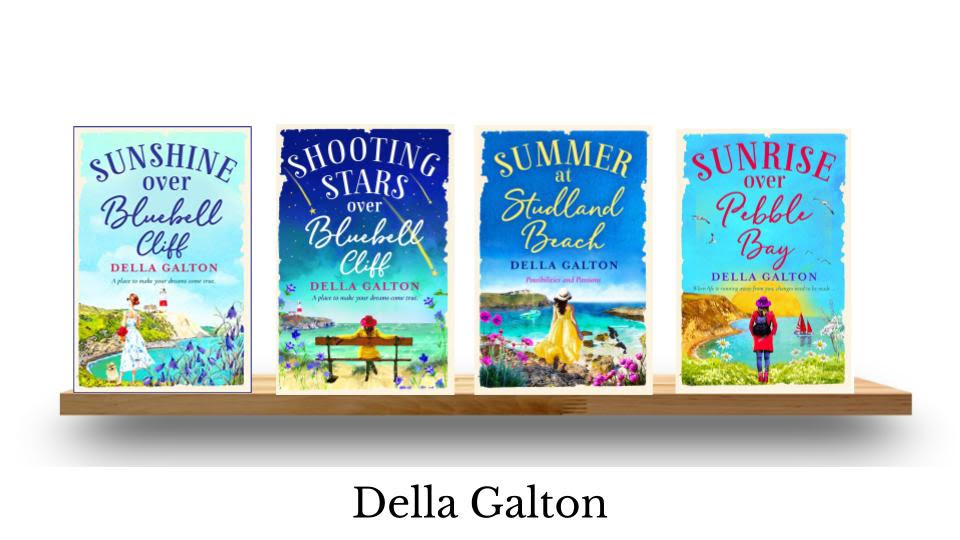The Problem – A Satisfactory End This problem has nothing to do with writers’ bottom by the way, or pigs for that matter – this is a different problem entirely – I am talking about achieving a satisfactory ending to your short story.  I have always had trouble getting, what is to my mind, a satisfactory ending. And I was reminded this week that I’m clearly not the only writer who struggles with this. I’ve just judged the Wells Festival of Literature Short Story Competition. I can’t say too much, because to date they have only announced the short list, but here are just three of the problems I came across. And they all involve unsatisfactory endings. Please forgive my tongue in cheek headings.
I have always had trouble getting, what is to my mind, a satisfactory ending. And I was reminded this week that I’m clearly not the only writer who struggles with this. I’ve just judged the Wells Festival of Literature Short Story Competition. I can’t say too much, because to date they have only announced the short list, but here are just three of the problems I came across. And they all involve unsatisfactory endings. Please forgive my tongue in cheek headings.
The ink ran out
These are the kind of endings which stop dead. Once or twice I actually found myself looking for another page. The stories often begin beautifully and have great writing, but then just stop. Nothing is resolved, nothing is explained, we are just left wondering what happened. Now, don’t get me wrong, I am all in favour of endings that are enigmatic – or even a little open ended (as long as they work). But they must still be endings. It must be clear we have reached the end – and the writer hasn’t just wandered off for a coffee and is coming back in a bit to write the last sentence.
Obvious from the outset
These are the opposite end of the scale. With a couple of the stories I guessed from the outset where we were going. And I was proved right. Which was disappointing. Again, these stories were often beautifully written, but it isn’t enough to take me on a journey from A to B if I can see the destination from the outset. Sometimes it may be enough if I am deeply moved by the journey, but not often to be honest. I need more. These are the stories that tend to read more like anecdotes or accounts. And anecdotes or accounts of an event, however moving, aren’t stories.
Yeah, but so what?
These are the ones where I reached the end and thought, yeah, but so what? Once again, some of these were fantastic ideas – but a fantastic idea isn’t enough to carry a short story, not without a fantastic ending to complete it. Sorry – there were quite a few of these.
Solutions
If it was easy, I suspect we wouldn’t have such problems with this, but here are some of the solutions that have worked for me. I hope they may be helpful for you too.
The ink ran out
These endings usually require a little more thought. Often the writer believes they have written a satisfactory ending because it is clear to them what happened – but this hasn’t come across on the page. (I am guilty of this myself) I just had a story returned to me which had exactly this problem. The solution, I realised, as I read through it was to underline the theme and make sure that it tied up with the ending. Make sure you know exactly what your story is about. And make sure the reader does too. Don’t spell it out, but do give your ending power and resonance. I believe this can be done most successfully when the theme is crystal clear in the writer’s mind.
Obvious from the outset
This one’s a little easier to resolve. Almost always it just means that some of the information you have given us up front needs to be withheld – so that there ARE some surprises. I’m not saying there has to be a twist, but there does have to be something that the reader doesn’t know at the outset. A theme here works well too. Your surprise could be tied up with the theme.
Yeah, but so what?
I found that these type of endings broke into two types. Both of them were to do with not caring enough. Either I didn’t care enough about the character so that when he/she got his happy ending (or not) I didn’t care much anyway. This one can be resolved by making him more likeable/believable/interesting.
Or… I didn’t care because the plot, while often absolutely fascinating, didn’t seem to have a point. For example, a lot of amazingly intriguing stuff happened and then we found out why, but there didn’t seem to be any real rhyme or reason to it. I think these work brilliantly if the writer can slide in a universal truth at the end. An example of this would be – and I’m moving away from short stories here to novels – the Boy in the Striped Pyjamas. This is a great book and has the most fabulously resonant closing lines I’ve ever read. I won’t spoil it if you haven’t read it but it actually ends with a beautiful ironic statement which outlines a universal truth about humanity. (well it does in my humble opinion) It doesn’t get much bigger than that. And as this is a blog post about endings, I had better just add a closing paragraph, hadn’t I! The ending of your story is the last thing a competition judge/editor sees. Get it right. A perfect ending will get you noticed. 🙂
While you’re here, please check out my two writing guides. How to Write and Sell Short Stories published by Accent Press and The Short Story Writers’ Toolshed published by Soundhaven.com
And if you’d like to know more about the Wells Festival of Literature which takes place from the 11th to 19th of October, click here.





Great advice. I have found myself in this position so many times. You start the story in a bubble of enthusiasm and then you get to the end and it just peters out to nothing. Some good pointers here on how I’ll fix that next time.
You can tell me when I do it too, David 🙂
Really helpful advice, especially the bit about witholding information (I’m too eager to tell all!)
It’s easily done, Clair. Thanks for commenting 🙂
Great advice thank you, Della. I’m now off to rejig a story I’ve just finished which I think is guilty of ‘obvious from the outset!’ xx
I think the only way of telling Sue, is to read the story out to a bunch of experienced readers/writers. It’s still the only way I can tell.
Great advice Della, as always. Please tell me the pig is yours!
Sadly Tracy, the pig is not mine 🙁